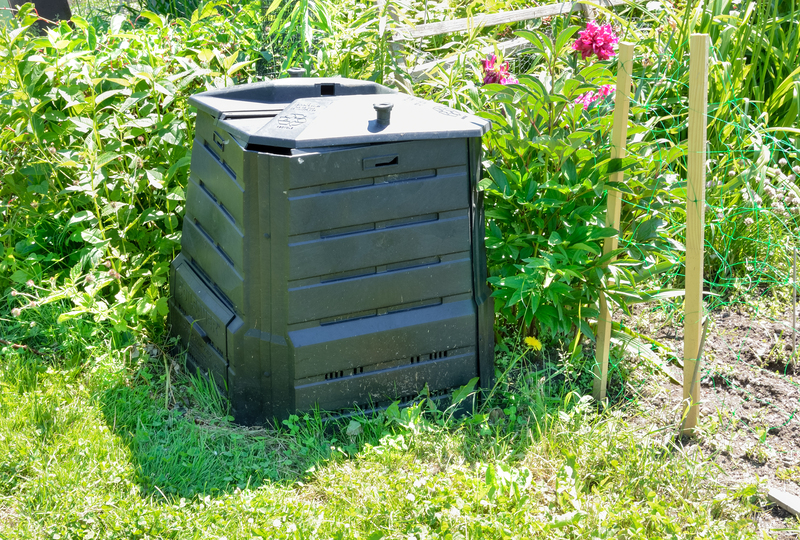How to Save Money on Bulky Waste Item Pickup and Removal
Disposing of large or bulky waste items can be a stressful and expensive endeavor, whether you are cleaning out your garage, renovating your home, or moving to a new place. From furniture removal to appliance pick-up, the costs can add up quickly. Luckily, there are several smart strategies you can employ to save money on bulky waste item pickup and removal services. In this comprehensive guide, we'll discuss actionable steps, creative solutions, and crucial tips to reduce your expenses while keeping your home clutter-free.

Understanding Bulky Waste Item Pickup and Removal
Before you jump into cost-saving tactics, it's essential to understand what qualifies as bulky waste, why it often incurs extra costs, and how local regulations may impact your choices.
What Counts as Bulky Waste?
- Furniture: Sofas, mattresses, dressers, dining tables, and large chairs.
- Appliances: Refrigerators, washing machines, ovens, dishwashers, and water heaters.
- Outdoor Items: Grills, fencing, old playsets, and patio furniture.
- Large Electronics: Televisions, computers, and home entertainment systems.
- Construction Debris: Carpet rolls, sinks, toilets, cabinetry, and other bulky renovation debris.
Many municipal waste programs do not provide free services for these items, or their schedules and rules can be very restrictive. Private services can be costly, but with the right strategies, you can cut your bulky item removal costs significantly.
Top Methods to Save Big on Bulky Waste Item Removal
Here's a breakdown of the best ways to minimize costs when disposing of large or cumbersome items:
1. Take Advantage of Free City or Municipal Pickup Days
- Most cities or towns offer free bulky waste pickup days once or twice a year.
- Check your local waste management website or municipal calendar to find these dates.
- Prepare and store items for pickup even if it means holding on to them until the scheduled day.
- Be aware of restrictions--some programs limit the number of items, types of acceptable waste, or require advance scheduling.
Tip: Do not miss registration deadlines. Many cities require that residents book their slots ahead of time for bulky waste collection events.
2. Reuse, Donate, or Sell Before Disposing
- Donating items to local charities or thrift stores reduces waste and can be free or even tax-deductible.
- Sell usable bulky items online through marketplaces like Craigslist, Facebook Marketplace, OfferUp, or Nextdoor.
- Offer free pickups--list items as "free" with the condition that the taker is responsible for removal from your property. This can eliminate your costs altogether!
- Creative upcycling: Old furniture can sometimes be repurposed into new functional items.
Remember: The less you throw out, the less you pay for discard services.
3. Break Down Items Yourself
Many disposal or junk removal companies charge less if items are broken down and ready for hauling. Dismantling bed frames, desks, shelving, or removing doors from appliances can save significant money by:
- Reducing the number of trips or volume/weight charges.
- Allowing for easier lifting and stacking, which can sometimes reduce crew size or labor time.
- Possibly allowing the items to fit into your regular trash or recycling bins (check regulations first).
4. Haul Items to the Dump or Transfer Station Yourself
- Most municipalities have landfill or transfer stations where residents can drop off bulky waste items for a nominal fee, often much less than curbside removal or private junk haulers.
- If you have a truck or can borrow one, this can be the most budget-friendly option.
- Some communities offer free dump days for residents. Check your area's schedule!
Note: Landfills often have special procedures or fees for restricted items like mattresses, electronics, or refrigerants. Always review local rules before hauling.
5. Split the Cost with Neighbors
Pooling resources with your neighbors is a smart way to save on junk removal services. Here's how you can benefit:
- Coordinate a group pickup so a single junk removal company hauls away multiple households' items in one trip.
- Negotiate a lower per-house rate or a reduced price for larger jobs--many junk haulers offer discounts for volume.
- Rent a dumpster and split the cost among several families cleaning out garages, attics, or basements at the same time.
6. Use "Pay-Per-Item" or "Curbside Only" Services
- Instead of paying for a full-service junk hauler, use companies that let you pay per item or only for curbside pickup, not labor for removing items from inside your home.
- This saves you the extra labor charges if you're able to bring the items to the curb or driveway yourself.
- Check if your city or private hauler offers bulk item stickers/tags that you can purchase for a moderate fee.
7. Shop Around and Get Quotes
Don't settle for the first quote you receive for bulky waste item pickup. Always:
- Request estimates from at least three companies or services.
- Ask about weight limits, volume-based pricing, and any hidden or additional fees.
- Inquire about seasonal promos, discounts for seniors, veterans, or first-time customers.
- Check online reviews to ensure you're not sacrificing quality for price.
Comparing Bulky Waste Removal Options: Cost Overview
Not all disposal methods are created equal in terms of cost, convenience, and environmental impact. Here's a comparative look:
- Municipal Pickup: Sometimes free, but can be slow, infrequent, or have strict rules.
- Dump/Transfer Station Drop-Off: Often cheapest if you own a suitable vehicle and can do the labor.
- Junk Removal Companies: Fast and convenient. Most expensive, but price drops if you do prep work yourself.
- Dumpster Rentals: Great for large cleanouts, but not cost-effective for a few items; splitting with others can save money.
- Donation/Resale: Possibly free, and environmentally friendly.
Generally, the more work you are willing to do yourself--such as moving items to the curb, breaking down furniture, or arranging group pickups--the less you'll spend on bulky item disposal.
Eco-Friendly and Responsible Disposal
Saving money on bulky waste pickup should never come at the cost of the environment. Always be responsible with your items.
- Many appliances and electronics contain hazardous materials; proper eco-friendly disposal is crucial. Look for local e-waste events or appliance recycling centers.
- Call your city or county for guidance on how to properly dispose of refrigerators, air conditioners, and anything with refrigerants.
- Items in good condition can often be given a second life by being donated or resold rather than becoming landfill waste.
Don't Forget Tax Advantages
- Donating bulky items to a non-profit? Make sure you get a receipt! You may be able to deduct their value on your taxes, potentially offsetting costs.
Avoiding Common Extra Fees
To truly maximize your savings on large item disposal, watch out for these hidden charges:
- After-hours or weekend surcharges: Schedule your pickups during regular hours.
- Stairs or distance fees: Most junk haulers charge more to move bulky waste long distances or up/down flights of stairs.
- Charges for unprepared items: Not draining appliances, failing to disconnect parts, or leaving items too large for a single person to move may result in extra labor charges.
- Hazardous waste handling: Ensure your items aren't mixed with materials requiring special disposal.
Bulky Waste Items: What Not to Do
- Don't dump your items in unauthorized locations or by the roadside--this is illegal and can result in hefty fines.
- Don't underestimate the cost of not checking for local drop-off events or free pickup days.
- Don't leave appliances or furniture outside to "give away" unless clearly labeled and immediately claimed by neighbors--this may violate city codes and attract fines.
Summary: Simple Steps for Budget-Friendly Bulky Item Disposal
Looking to save money on bulky waste pickup and removal? Here's a quick recap of top strategies to keep your wallet (and your curb) clear:
- Leverage free or subsidized municipal pickup programs.
- Donate, sell, or give away usable items.
- Disassemble and prepare items yourself to save on labor and volume.
- Haul items to the dump with your own or a borrowed vehicle.
- Join forces with neighbors or friends for group pickups/dumpster rentals.
- Use pay-per-item or curbside-only pickup options if available.
- Shop around for quotes and ask for discounts.
- Prioritize eco-friendly and legal disposal methods.
By following these practical tips, you can efficiently dispose of your bulky waste items without breaking the bank. Whether you're doing a major cleanout, moving, or simply upgrading old furniture, there's always a way to reduce your bulky item removal cost and keep your cleanup project on budget!
Frequently Asked Questions About Saving Money on Bulky Waste Removal
Q: Are there items that bulk waste removal services won't take?
A: Yes. Most services have restrictions on hazardous waste (chemicals, paints), tires, certain electronics, and items with refrigerants. Check with your provider ahead of time.
Q: How much does bulky item removal usually cost?
A: Prices vary widely by region, volume, and the number of items, but expect a range of $50 to $200 per item for professional services. You can cut these costs dramatically using DIY or free municipal services.
Q: Can I leave bulky waste on the curb without scheduling pickup?
A: Never assume you can leave bulky items at the curb; this may be illegal and can attract fines. Always follow local rules and schedule pickups where required.
Q: What is the most affordable way to get rid of bulky waste?
A: The cheapest methods are often donation, selling, arranging curbside pickup on free city events, or transporting your items to a local dump yourself.

Final Thoughts
Handling bulky waste item disposal doesn't have to drain your budget. With proactive planning, use of community resources, a bit of DIY effort, and some creativity, you can manage your cleanup effectively and affordably. Always prioritize legal and eco-friendly methods--it's good for your wallet, your neighborhood, and the planet.
For more expert advice on household savings, organization, and waste management, bookmark this page and share these tips with friends or neighbors doing their own cleanouts!